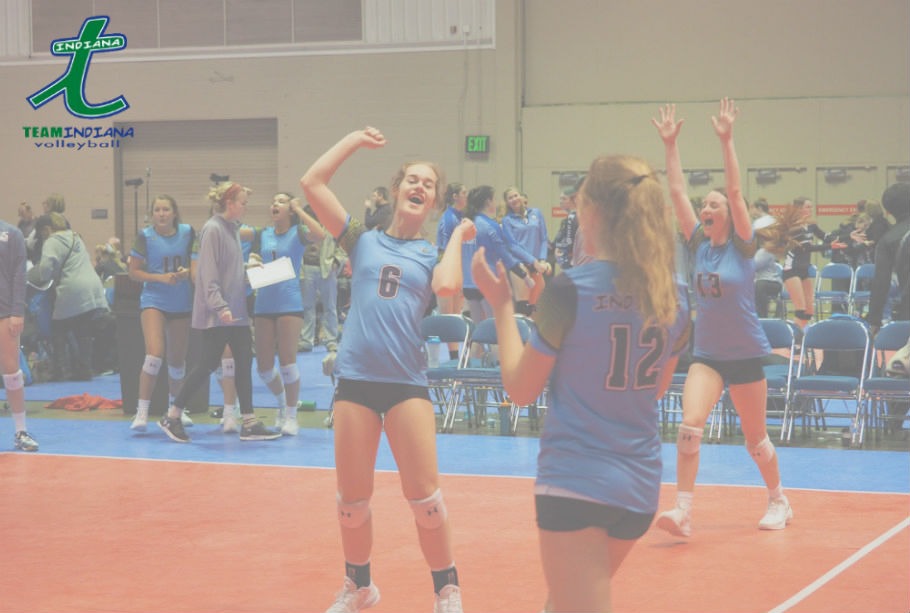3 Ways to Positively Play Volleyball
You walk off the court after the last point of your tournament, your only loss on the weekend. All in all, it was a great tournament for you and your teammates, but you weren’t able to finish with a win. Your team played well, yet all you can think about are the failures of the weekend. Why didn’t you put that one ball away? What about that missed serve? What would’ve happened had you picked up that tip? Time and again, players judge their tournaments and their play not by the successes they had, the positive moments they shared with their teammates and coaches, but rather the few failures and missed opportunities. Do you define your play by the positive things that happen, or only focus on the negatives?
In the age of social media and the increasing pressure from external impulses, athletes find it more difficult to look at themselves in a positive light.
Recently talking to players and asking the simple question, “How do you think your tournament went?”, the response was overwhelmingly negative, but not purposely.
“It was all right, but this, this, this, and that could’ve been better.”
“I played ok, but I need to get better at this and these things.”
“I thought the team played well, but I think I could’ve done better at this and that.”
Nearly all responses were purported in a negative light. None referenced the things that they did well, but the focus was on the things they felt they did poorly.
These kinds of responses are extremely common, even after an extremely successful weekend. The default thought process for many athletes is to think about the laundry list of things that can always be better. But what about the things that they are already good at? What about the things they did well? Where do all of those go? Over time, I’ve noticed that there is a reliance on external messages to deliver positivity, and nearly no internal processes to deliver that message themselves.
Social media is a massive influence on high-school-aged athletes today. Frequently, when you see friends or family posting things on Facebook, Instagram, Snapchat, etc…it’s a running highlight reel. You only see the best 5% of those individuals’ lives, creating a sense that you’re always missing out on something, you can always be doing something better, or you can always be a better version of yourself. This messaging, especially in student athletes who are still developing their own identity at that age, has created an environment where nothing is ever quite good enough. That can lead to feelings of insecurity, negativity, and self degradation, through little fault of your own.
So what can you, as an athlete, do differently?
Give your thoughts a positive spin:
Try to rephrase your thoughts and words as a player. As an example, you can take a negative phrase, “I didn’t play badly,” and make it into an easy positive, “I played well.” You are saying the same thing, but spinning it in two different ways. One will make you feel positivity for yourself, while the other continues to create areas of doubt.
Actively talk about what you did well:
You can start every conversation about your play with the things that you did well, instead of leading with the things you can improve on.
“I served very accurately and aggressively, I really placed my shots well offensively and kept the other team out of system, and defensively I was reading my hitter and really working through my progression. I know that I need to work on my serve receive, specifically keeping my body behind the ball and driving my shoulders through the ball, but I did a lot of things well.”
It is a difficult mindset change and creates a new outlook that many high-school aged athletes just aren’t used to now, but that doesn’t mean you can’t get there.
Learn how to take a compliment:
Listen and accept when people compliment your game and the way that you play. No, that is not giving a polite “thank you” when someone tells you how well you played. Rather, it is truly listening to that compliment and seeing what they’re talking about, looking at how you played from a new perspective, and telling yourself, “You know what? I really did play well. They’re right!”
The next time you play in a tournament or any other setting, regardless of the result, try to look at it in a positive fashion. Just like anything else, these feelings and emotions as an athlete will require practice, just like your skills do. You have to actively remind yourself and check yourself when you get inside your head. Sometimes when you leave everything on the court, you don’t quite make it to the top of the mountain. However, there are more mountains, more tournaments, and more opportunities, so start working on that mindset now. Who knows, maybe a new outlook will give you more motivation to get better, work harder, and take that next step. Try it, what do you have to lose?



